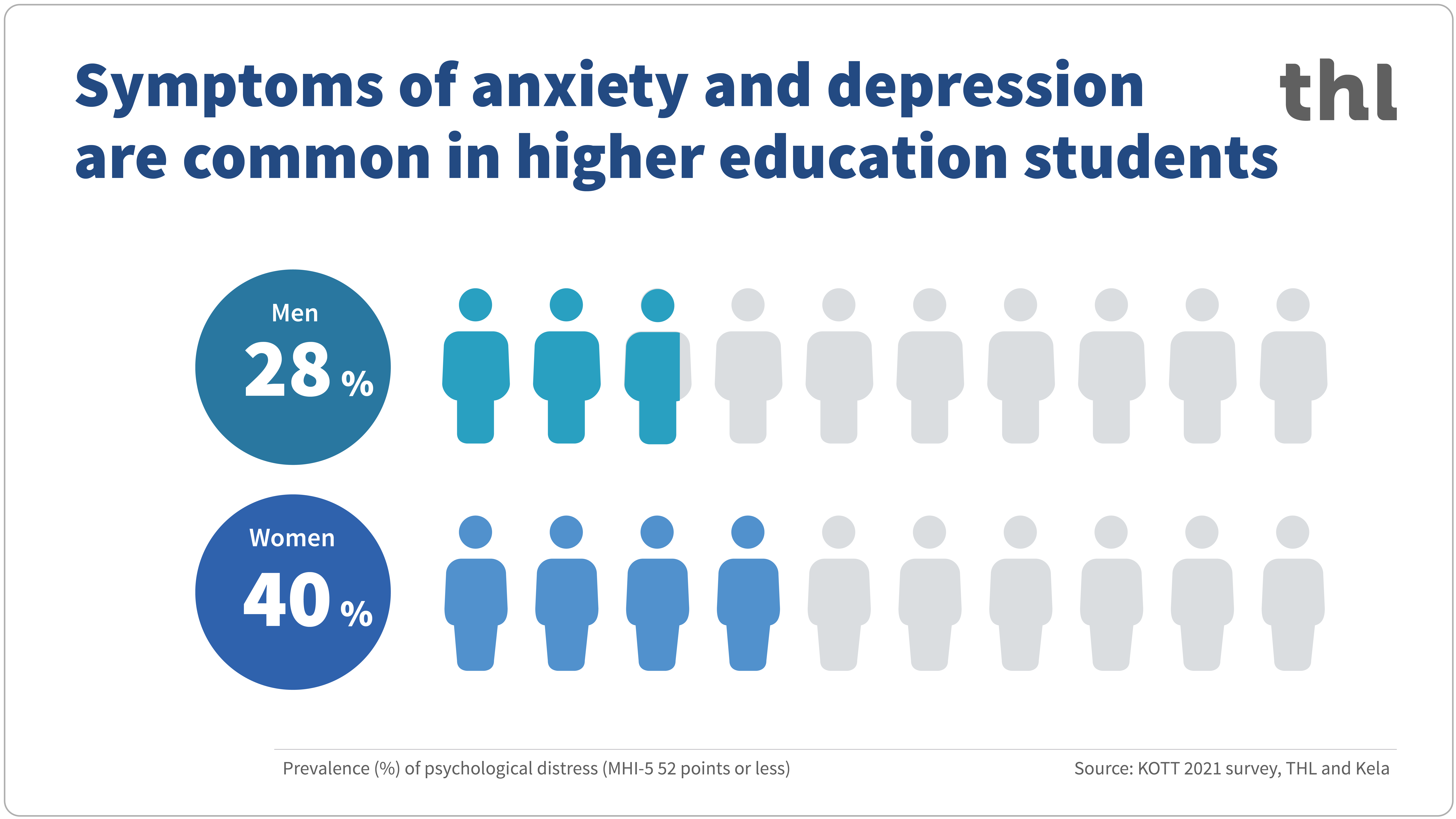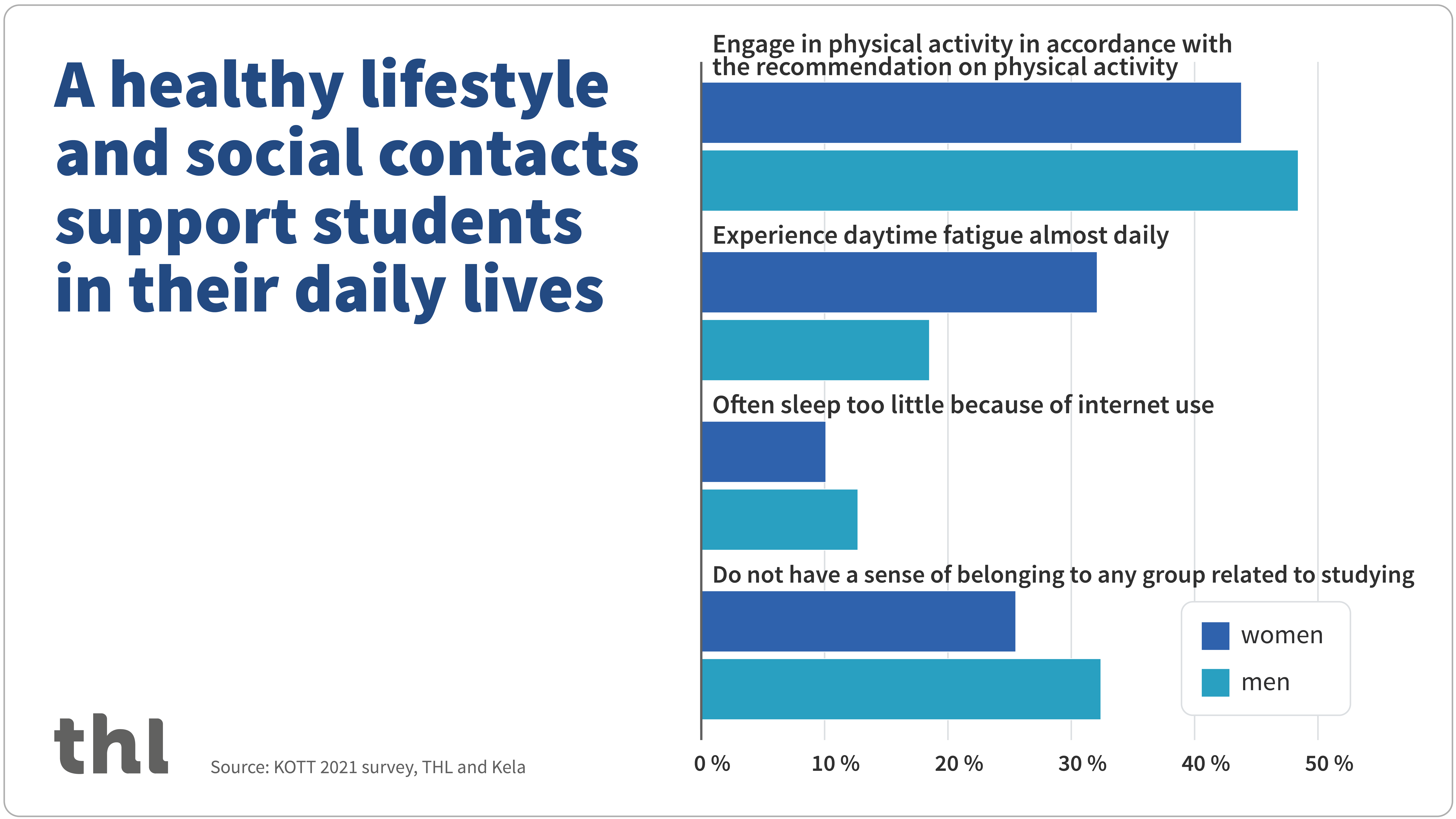Higher education students need support – researchers concerned about the high prevalence of symptoms of anxiety and depression
According to recent research results, one in three higher education students suffer from symptoms of anxiety and depression. Students displayed proportionally more mental health symptoms and psychological distress than the adult population as a whole. The Finnish Student Health and Wellbeing Survey (KOTT) was carried out in February and March 2021 in cooperation between the Finnish Institute for Health and Welfare (THL) and the Social Insurance Institution of Finland (Kela).
According to the survey, the situation of women studying at universities and universities of applied sciences was the worst. Forty percent of them reported symptoms of anxiety and depression.
Diagnosed depression and a diagnosed anxiety disorder were both more common in female students than in male students. Women’s risk of developing an eating disorder was threefold compared to men.

“When the person experiences significant, long-term anxiety and depression, the need for treatment must be assessed. Behind their symptoms, they may have mental health problems that require treatment. At the same time, action must be taken to deal with the problems that cause the symptoms,” says Jaana Suvisaari, Research Professor at THL.
“The teaching staff need to have contact with the students. Face-to-face encounters are particularly important for those students whose psychological distress is caused by study difficulties resulting from distance learning," Suvisaari says.
Physical activity, sufficient sleep and social contacts promote recovery
During the COVID-19 epidemic and national restrictive measures in spring 2021, there were few opportunities for social contacts. One in four female students and one in three male students reported that they did not feel they belonged to any group related to studying.
“Distance learning has reduced the sense of community. The lack of the support provided by the study group makes studying more difficult especially for young higher education students. It is important that students receive support from higher education institutions and are involved in the activities of student organisations and other communities. It is equally important to maintain a healthy lifestyle,” says Suvi Parikka, Development Manager at THL.
According to the results, even a small amount of physical activity may help recovery. It is good that almost one half of higher education students engaged in physical activity in accordance with the recommendation on physical activity during the COVID-19 epidemic. One in three students engaging in physical activity experienced symptoms of anxiety and depression. One half of the students who did not engage in regular physical activity reported the same symptoms.
Day-time fatigue was reported by one in four students. Of them, two out of three experienced symptoms of anxiety and depression. One in ten students reported that they easily slept too little because of internet use.

The Finnish Student Health and Wellbeing Survey 2021
- A total of 12,000 randomly selected undergraduate students aged 18–34 from universities of applied sciences and universities were invited to participate in the survey.
- A total of 6,258 students responded to the survey. The response rate was 53 percent.
- The topics of the survey were student health, lifestyle, perceived wellbeing, social relations, study ability and the need and use of health services.
- The online survey was carried out in February and March 2021 during the third wave of the COVID-19 epidemic.
- The survey is implemented every four years.
Further information
Suvi Parikka
Development Manager
THL
tel. +358 29 524 7959
[email protected]
Jaana Suvisaari
Research Professor
THL
tel. +358 29 524 8539
[email protected]
Timo Hujanen
Senior Researcher
Kela
tel. +358 20 63 41931
[email protected]
References
Read about the results in the Terveytemme service (link in Finnish)



